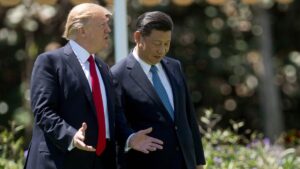As Europe accelerates its transformation in cross-border financial technologies, Turkish fintech startups are emerging as critical enablers of a new digital payment landscape connecting Europe with Asia, the Middle East and Africa.
A recent report titled “Cross-border Payments: Europe 2025,” produced jointly by Money20/20, the prominent fintech show, and FXC Intelligence, the provider of cross-border payments data and insights, outlined the shifting dynamics in the continent’s cross-border financial infrastructure.
While Türkiye is not explicitly detailed in the country breakdown, regional analyses of the report emphasized the nation’s strategic geographic and economic position as a financial transit hub that serves as a gateway between Europe, Asia, the Middle East and Africa.
In particular, Turkish fintech startups are highlighted for their potential to play a crucial role in establishing “cross-border digital payment corridors,” thanks to their expansion into the European market and digital wallet infrastructures.
The report notes that regulatory compliance, especially alignment with Europe’s PSD2 open banking standards and data protection rules, is accelerating this cross-continental integration.
Companies such as Sipay, Param and PayTR are leading the charge in digitizing commerce between Europe and Türkiye. The demand for low-cost, transparent and fast financial services is especially prominent in sectors like tourism and remittance-based transactions, where Türkiye sees heightened activity from international users.
Real-time payments and digital wallet
As of this year, the European fintech ecosystem is expected to undergo a significant transformation, driven largely by real-time payments and digital wallet adoption.
The report, which synthesizes insights from over 50 European fintech and payments executives, paints a picture of a rapidly evolving payments map and highlights the fundamental changes expected in Europe over the next 10 years.
Key priorities for European firms engaging in cross-border transactions include reducing costs (83%), scaling real-time payments (82%), increasing speed (74%), integrating digital wallets (73%) and ensuring greater transparency and traceability (70%).
Türkiye’s proactive investments in payment infrastructure and regional fintech partnerships position it as a natural stakeholder in this shift. As reliance on legacy banking systems wanes, fintech-driven solutions are becoming the preferred choice for both businesses and consumers seeking more flexible, real-time financial services.
Nearly $26 trillion opportunity
The report identifies the United Kingdom, Germany, France, the Netherlands and Estonia as the frontrunners in financial innovation. Among companies, Wise and Revolut lead in market penetration, with 45% and 37% shares, respectively.
As of 2025, the volume of cross-border payments in Europe is projected to reach $18 trillion. This figure is expected to climb to $25.9 trillion by 2032.
Highlighting the region’s growing influence in shaping the global financial system, Scarlett Sieber, chief strategy officer at Money20/20, said: “Europe is leading the transformation of financial services.”
“To make cross-border payments faster, cheaper and smarter, the entire industry must work in collaboration.”
FXC Intelligence CEO Daniel Webber echoed this sentiment, adding, “Data-driven, sustainable and regulation-friendly payment systems will be key to strengthening Europe’s global edge.”
Glimpse into 2035
Looking ahead to 2035, the report forecasts that payment systems in Europe will be predominantly real-time, operating through API-based modular platforms with full transparency and lower transaction costs.
The study also includes comparative analyses of Asia, Europe and North America, offering a comprehensive view of global payment trends.
For emerging markets like Türkiye, where investment in fintech continues to grow, this report acts as a strategic road map.
Turkish fintech startups strengthen global footprint
At one of the world’s most prominent financial technology gatherings, Money 20/20 Europe, Turkish fintech companies made a striking appearance, showcasing innovative solutions and expanding their global visibility.
Held in Amsterdam on June 3-5, the 2025 edition of the event brought together more than 8,000 participants from over 90 countries, drawing some of the most influential players in the financial services and technology sectors.
Turkish fintech firms took part through a shared national pavilion, underlining their ambitions to grow their presence in the European market, gain greater visibility in the global market and forge new international partnerships.
With an emphasis on cutting-edge technology and regulatory adaptability, Turkish startups used the platform to introduce forward-looking financial products aimed at accelerating digital transformation in payments, banking and crypto-assets.
Companies such as Sipay leveraged the global stage to promote their proprietary financial solutions, while Misyon Bank stood out as the only Turkish lender represented. Alongside Param and Paribu, they showcased offerings in digital wallets, payment gateways and cryptocurrency infrastructure.
AI and regulation
Artificial intelligence and regulatory technology (RegTech) were among the headline topics of this year’s event, alongside sustainable finance. Global financial institutions shared emerging applications for AI in enhancing customer experience, risk management and operational efficiency.
For Turkish fintechs, aligning with these global trends is key to sustaining momentum. Their participation at Money 20/20 Europe not only increased visibility but also facilitated critical networking for investment and collaboration.
By tapping into one of the most influential fintech platforms, Türkiye’s financial innovators have taken a notable step toward deepening their integration with Europe’s fintech ecosystem and expanding into new global markets.
Sipay expands global reach with new offices
As the fintech race intensifies, Turkish firm Sipay is doubling down on its international expansion efforts, underpinned by cutting-edge technology and strategic investments in innovation.
Speaking at the Money 20/20 Europe conference in Amsterdam, CEO Semih Muşabak emphasized the importance of building strong tech foundations to compete effectively with established banks.
Participation at this year’s edition marks Sipay’s third year at Money 20/20, and Muşabak said “we continue to build on our progress each year.”
“We’re here to strengthen ties with our partners, explore new collaboration opportunities and accelerate our global growth strategy.”
Sipay has opened offices in South Africa, Azerbaijan and Dubai, a move Muşabak said reflects the company’s ambition to grow across diverse markets.
“Money20/20 is an important event for strengthening collaborations with our partners, discussing new possibilities and expanding strategic partnerships,” he said, adding that they had multiple productive meetings.
Competing with banks
Highlighting the strength of Türkiye’s banking infrastructure, Muşabak noted that the country’s fintechs must leverage advanced technologies to stay competitive.
“Fintech companies like Sipay must develop highly advanced technologies to compete against banks. All financial technology startups are required to invest in technologies such as artificial intelligence,” he said.
“In Türkiye, industry players stand out with their technological advancements, influencing other competitors in Europe and the U.S. While some international players operate within a single vertical, Turkish companies serve across multiple verticals. This makes it significantly easier for them to export their technologies abroad, a trend that is widely observed at Money20/20.”
Blockchain
Sipay is also embracing blockchain not only as a tool for internal operations but as a strategic pillar for broader ecosystem development.
Muşabak said they see blockchain technology as critically important in shaping their overall business strategy.
“We are investing in blockchain technology to ensure regulatory compliance. Additionally, it plays a key role in accelerating processes and establishing a reliable infrastructure,” he noted.
“Sipay is exploring the use of blockchain technology to create an ecosystem with external stakeholders and leverage the technology collaboratively. This positions blockchain not only as part of Sipay’s internal operations but also as a strategic tool for cooperation and growth in a broader ecosystem.”
Türkiye’s digital leap accelerates with 5G
One of Türkiye’s pioneering telecoms and technology companies, Türk Telekom is ramping up its leadership in next-generation connectivity as it positions itself at the forefront of the country’s 5G transformation.
At the WIN EURASIA 2025 trade fair held in Istanbul, the company took center stage as the main sponsor of the 5G Arena, showcasing real-world applications that hint at the industrial future enabled by ultra-fast mobile networks.

Held under the theme “Focus on Automation,” this year’s WIN EURASIA brought together 32 technology companies, who demonstrated 22 distinct 5G use cases powered by Türk Telekom’s advanced network infrastructure.
The four-day event, hosted at the Istanbul Expo Center from May 28 to 31, provided an immersive environment where visitors could interact with the technologies shaping the digital economy of tomorrow.
Preparations for 5G
Speaking at the event, Zeynep Özden, deputy general manager in charge of marketing and customer experience at Türk Telekom, emphasized the company’s role in supporting Türkiye’s national 5G strategy.
“With our strong fiber infrastructure, LTE mobile base stations – 54% of which are connected by fiber – and our pioneering initiatives in various fields, we are Türkiye’s most prepared operator for 5G. We have implemented innovative applications across a wide spectrum, from healthcare to agriculture, transportation to industry and sports to the arts,” said Özden.

“At the WIN EURASIA Fair, we were thrilled to showcase the industrial 5G experience to visitors in the 5G Arena, where 22 different 5G use cases were presented.”
5G applications
Developed in partnership with Nokia, the 5G Arena was one of the most talked-about features of WIN EURASIA. The arena featured live demonstrations of 5G-powered innovations ranging from smart factories and autonomous systems to health tech and industrial robotics.
Attendees experienced the advantages of 5G, including ultra-low latency, high-speed connectivity and massive bandwidth, through hands-on simulations that underscored how the technology can transform industrial workflows and enable smarter, more connected ecosystems.





















































Be First to Comment